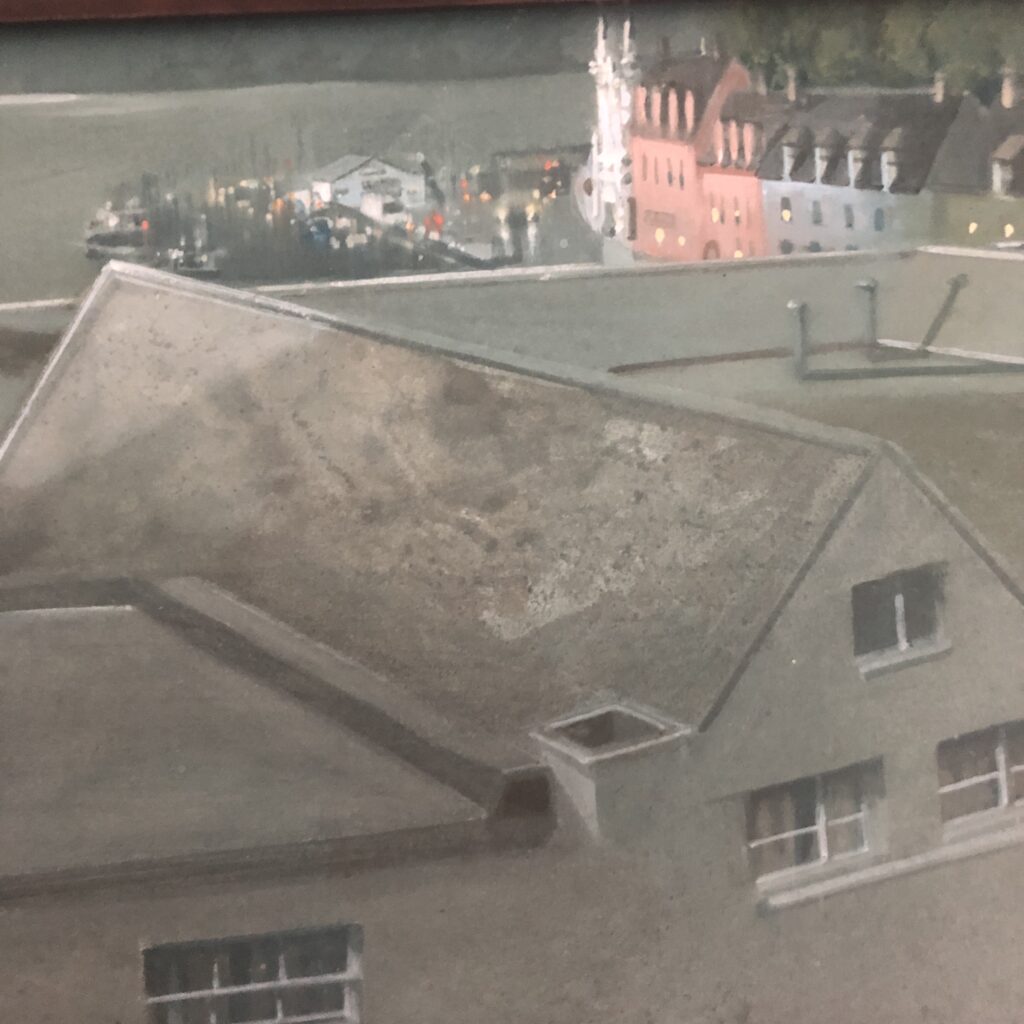The tip of the iceberg

Skye, Chris Baker, gouache, detail.
About 200 hundred pages into the Kilmartin translation of Swann’s Way—I came back to this passage after finding a similar observation in the second book—Proust talks about how his fiction is non-intellectual, and that his lack of ideas originally persuaded him that he couldn’t be a writer. A La Recherche du Temps Perdu shows how his pursuit of love and friendship and social status kept him from discovering his vocation, though ironically the story of his immersion in the illusions of society becomes the actual content of the novel he was unable to write because he was living the events of the book. He had to get lost to find himself.
Here is the passage that says so much, for me, about visual art and the lack of intellectual content or meaning in the paintings I love most (it’s appropriate that visual art was one of the primary inspirations for Proust’s novel and for his style of writing):
Then, quite independently of these literary preoccupations and in no way connected with them, suddenly a roof, a gleam of sunlight on a stone, the smell of a path would make me stop still, to enjoy the pleasure that each of them gave me, and also because they appeared to be concealing, beyond what my eyes could see, something which they invited me to come and take but which despite all my efforts I never managed to discover. Since I felt that this something was to be found in them, I would stand there motionless, looking, breathing, endeavoring to penetrate with my mind beyond the thing seen or smelt . . . It was certainly not impressions of this kind that could restore the hope I had lost of succeeding one day in becoming an author and poet, for each of them was associated with some material object devoid of intellectual value and suggested no abstract truth.
He ignores these intimations for years because they offer him no ideas. He spends years believing he had no talent, no creative virtues, as a result of this lack of intellectual originality. By the end of the novel, the elimination of ideas in favor of the raw phenomena of life, the matrix of felt experience, becomes his sextant, enabling him to bring to life a complex and beautifully superficial world, saturated with a reality to which its inhabitants remain deaf and blind, except in brief, revelatory moments—and those simple moments are what his art is dedicated to triggering, the opening up of a world, intensely familiar but also fresh, surprising, and new. In other words, alive. And through all of it runs the Platonic suggestion that these glimpses are also glimpses of something incorruptible and timeless, hints that the material world is merely the tip of an iceberg invisible to conscious thought.
Comments are currently closed.